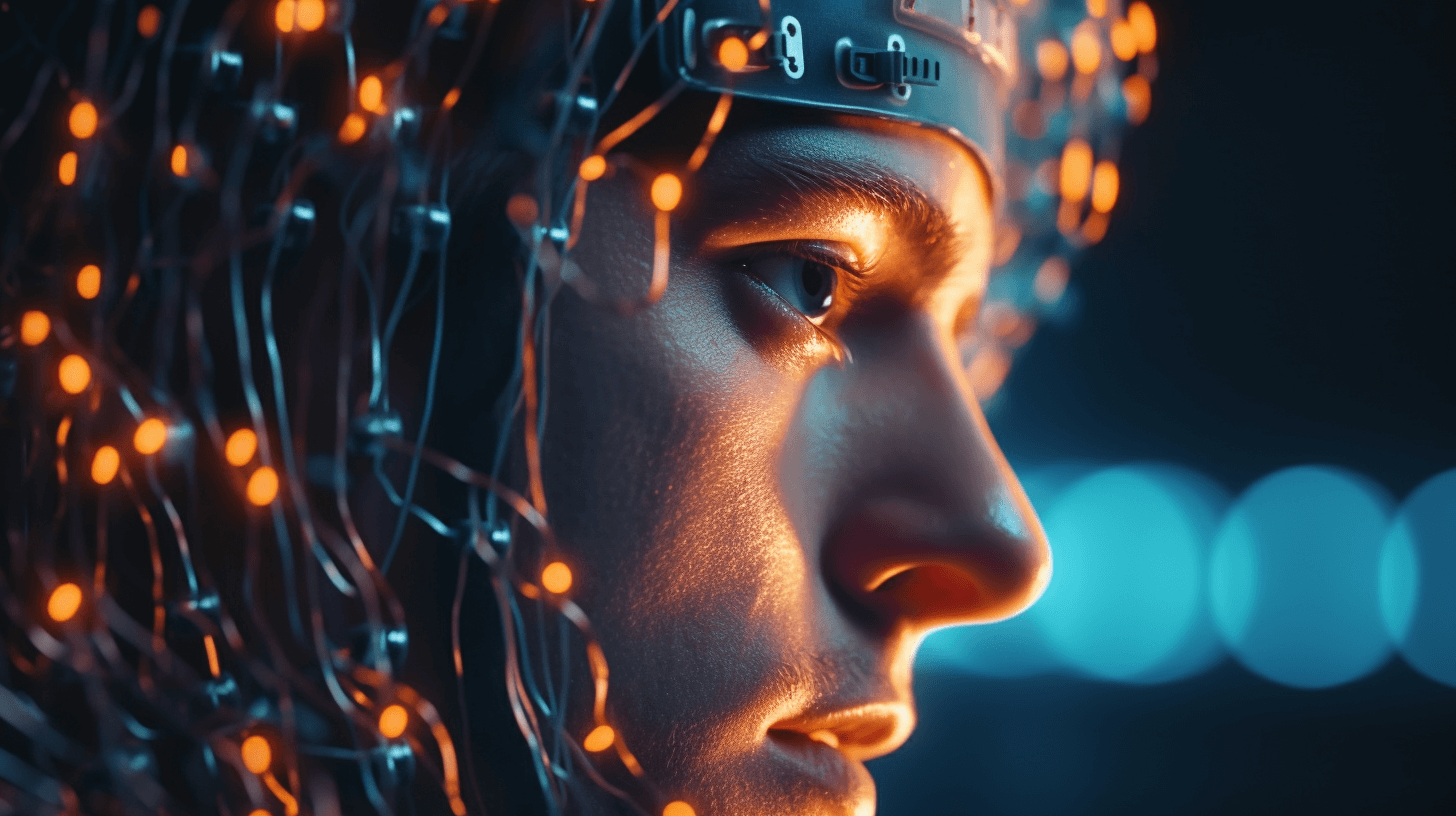🧠⚡📚 Da Scientists Zap Sleeping Humans’ Brains wit’ Electricity to Improve their Memory
A little brain stimulation at night appears to help people remember what they learned the previous day.
A study of 18 people with severe epilepsy found that they scored higher on a memory test if they got deep brain stimulation while they slept, a team reports in the journal Nature Neuroscience.
The stimulation was delivered during non-REM sleep, when the brain is thought to strengthen memories it expects to use in the future. It was designed to synchronize the activity in two brain areas involved in memory consolidation: the hippocampus and the prefrontal cortex.
“Some improved by 10% or 20%, some improved by 80%,” depending on the level of synchrony, says Dr. Itzhak Fried, an author of the study and a professor of neurosurgery at the University of California, Los Angeles. 💪🌙🔌
The results back a leading theory of how the brain transforms a daily event into a memory that can last for days, weeks, or even years. They also suggest a new approach to helping people with a range of sleep and memory problems.
“We know for instance that in patients with dementia, with Alzheimer, sleep is not working very well at all,” Fried says. “The question is whether by changing the architecture of sleep, you can help memory.” 🧠💤💭
Although the results are from a small study of people with a specific disorder (epilepsy), they are “reason to celebrate,” says Dr. György Buzsáki, a professor of neuroscience at New York University who was not involved in the research. 🎉🔬
Rhythms in the brain 🎵🧠
During sleep, brain cells fire in rhythmic patterns. Scientists believe that when two brain areas synchronize their firing patterns, they are able to communicate.
Studies suggest that during non-REM sleep, the hippocampus, found deep in the brain, synchronizes its activity with the prefrontal cortex, which lies just behind the forehead. That process appears to help transform memories from the day into memories that can last a lifetime.
So Fried and his team wanted to know whether increasing synchrony between the two brain areas could improve a person’s memory of facts and events. 🔄🔀📖
Their study involved epilepsy patients who already had electrodes in their brains as part of their medical evaluation. This gave the scientists a way to both monitor and alter a person’s brain rhythms.
They measured memory using a “celebrity pet” test in which participants were shown a series of images that matched a particular celebrity with a specific animal. The goal was to remember which animal went with which celebrity.
Patients saw the images before going to bed. Then, while they slept, some of them got tiny pulses of electricity through the wires in their brains. ⚡💤🧠
“We were measuring the activity in one area deep in the brain [the hippocampus], and then, based on this, we were stimulating in a different area [the prefrontal cortex],” Fried says.
In patients who got the stimulation, rhythms in the two brain areas became more synchronized. And when those patients woke up they did better on the celebrity pet test. 🎯🏆🐶🐱
The results back decades of research on animals showing the importance of rhythm and synchrony in forming long-term memories.
“If you would like to talk to the brain, you have to talk to it in its own language,” Buzsáki says. 🗣️🧠🗣️
But altering rhythms in the brain of a healthy person might not improve their memory, he says, because those communication channels are already optimized.
The epilepsy patients may have improved because they started out with sleep and memory problems caused by both the disorder and the drugs used to treat it.
“Maybe what happened here is just making worse memories better,” Buzsáki says.
Even so, he says, the approach has the potential to help millions of people with impaired memory. And brain rhythms probably play an important role in many other problems.
“They are not specific to memory. They are doing a lot of other things,” Buzsáki says, like regulating mood and emotion.
So tweaking brain rhythms might also help with disorders like depression, he says. 🤞🧠😊
The findings of this study open up new possibilities for enhancing memory and improving the quality of sleep for individuals with various conditions. Further research will be needed to explore the full potential and long-term effects of brain stimulation during sleep. But for now, the idea of harnessing the power of electricity to unlock the secrets of our memory shows promise in the field of neuroscience. 💡🧠⚡
NOW IN ENGLISH
🧠⚡📚🧠⚡📚 Da Scientists Zap Sleeping Humans’ Brains wit’ Electricity to Improve their Memory
A recent study has revealed that a little brain stimulation during nighttime can have a positive impact on people’s ability to remember what they learned the day before.
In the research conducted on 18 individuals with severe epilepsy, it was observed that those who received deep brain stimulation while sleeping performed better on memory tests. The study, published in the journal Nature Neuroscience, focused on delivering stimulation during non-REM sleep, a phase where the brain is believed to consolidate memories it expects to utilize in the future. Specifically, the stimulation aimed to synchronize the activity between two crucial memory-related brain regions: the hippocampus and the prefrontal cortex.
According to Dr. Itzhak Fried, a professor of neurosurgery at the University of California, Los Angeles, some participants exhibited significant improvements in memory, ranging from 10% to 80%, depending on the level of synchrony achieved between the brain areas. These findings support a leading theory regarding how the brain processes daily events and transforms them into lasting memories, spanning from days to weeks or even years. Additionally, the study suggests a potential novel approach to addressing sleep and memory-related issues experienced by various individuals.
Dr. György Buzsáki, a neuroscience professor at New York University, who was not involved in the research, expressed enthusiasm about the results, deeming them a cause for celebration. Although the study was limited to individuals with epilepsy, it provides valuable insights into the relationship between brain stimulation during sleep and memory enhancement. 🎉🔬
Rhythms in the brain 🎵🧠
During sleep, brain cells exhibit rhythmic firing patterns, which scientists believe enable communication between different regions of the brain. Research indicates that during non-REM sleep, the hippocampus and the prefrontal cortex synchronize their activities. The hippocampus, situated deep within the brain, coordinates with the prefrontal cortex, located behind the forehead. This synchronization process plays a vital role in transforming daily memories into long-lasting ones that endure a lifetime.
Motivated by these findings, Dr. Fried and his team sought to investigate whether increasing synchrony between the hippocampus and the prefrontal cortex could enhance a person’s memory of facts and events. To conduct their study, the researchers enlisted epilepsy patients who already had electrodes implanted in their brains as part of their medical evaluation. This allowed them to both monitor and modulate the participants’ brain rhythms.
The researchers evaluated memory using a “celebrity pet” test, where participants were shown a series of images pairing specific celebrities with particular animals. The goal was to remember which animal corresponded to each celebrity. Participants viewed the images before going to bed, and while they slept, some received subtle electrical pulses through the brain electrodes.
“We measured the activity in one area deep in the brain (the hippocampus) and then used this information to stimulate a different area (the prefrontal cortex),” explained Dr. Fried.
The results showed that patients who received brain stimulation experienced greater synchronization between the two brain regions. Consequently, upon waking up, these individuals demonstrated improved performance on the celebrity pet test, reinforcing decades of animal research highlighting the significance of rhythm and synchrony in the formation of long-term memories. 🎯🏆🐶🐱
Dr. Buzsáki emphasized the importance of engaging with the brain in its own language to establish effective communication. However, he noted that altering brain rhythms in healthy individuals might not necessarily enhance their memory since their communication channels are already optimized.
It is worth considering that the epilepsy patients in the study may have experienced memory and sleep-related challenges due to the disorder itself as well as the medications used to manage it. Dr. Buzsáki speculated that the observed improvements might be attributed to the brain’s ability to enhance worse memories rather than simply boosting already functioning ones.
Nevertheless, he emphasized that this approach holds potential for assisting millions of individuals with memory impairments. Furthermore, brain rhythms likely play a crucial role in various other conditions beyond memory, such as mood and emotion regulation. As a result, adjusting brain rhythms could potentially benefit individuals with disorders like depression. 🤞🧠😊
These findings present exciting possibilities for enhancing memory and improving sleep quality for individuals with different conditions. Further research will be necessary to explore the full potential and long-term effects of brain stimulation during sleep. Nonetheless, the concept of utilizing the power of electricity to unlock the mysteries of memory shows promise in the field of neuroscience. 💡🧠⚡







